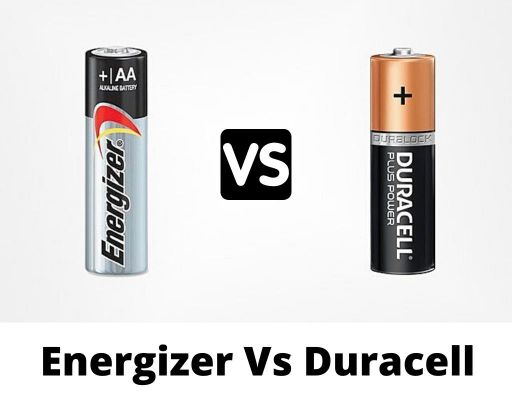The obvious difference is obviously in the voltage rating of each of these. But there are other factors too. Such as stability, battery chemistry, interchangeability and so much more.
This article will provide you with greater insight into the distinctions between 1.2 vs 1.5 volt battery as well as the perfect use case for each of them.
What is Voltage? Why Does It Matter?
The electric potential energy per unit charge is represented by a voltage. The voltage of an electrical charge put in a certain area reflects the potential energy of that charge at that position.
But why is it an important factor concerning batteries?
Under a specified rated voltage, devices and equipment are intended to function properly. Connecting equipment to the incorrect voltage can result in a variety of issues, ranging from the inability to work to dangerous repercussions such as fire.
For example, a bulb may be dim, a motor may not or just slowly turn, or a heating element may barely heat. The appliances will most likely not operate at all.
Hence, it is of great importance to use a battery with an app voltage rating that is compliant with the demand of the electronic device.
Battery Size Calculator
1.2 vs 1.5 volt Battery: Quick Comparison Table
There are a few factors that differentiate between a 1.2v battery and a 1.5v battery. Let us take a quick look at them below.
| Features | 1.2 Volt Battery | 1.5 Volt Battery |
| Battery Chemistry | Alkaline, Lithium | NiMH (Nickel Metal Hydride), e.g. NiCd (Nickel Cadmium) |
| Voltage | 1.2 Volts | 1.5 Volts |
| Power Supply Stability | Maintains a steady power supply | Unstable and changes with time |
| Interchangeability | Yes | Not in most cases |
| Energy Drop | Less drop over time | More drop over time |
| Preference for Multiple Cell Device | Preferred | Not preferred |
| Voltage Stabilization | More stable | Less stable |
These are some of the common differential factors between these two batteries with different voltages.
1.2 vs 1.5 Volt Battery: All The Differences Explained
The features stated above are the most common distinctions between a 1.2v battery and a 1.5v battery. But it might not be clear to most people how these features affect a circuit. Therefore, I will provide an in-depth explanation of these features.
Battery Chemistry:
1.2v batteries tend to be made up of NiMH (Short for Nickel Metal Hydride) or NiCd (Nickel Cadmium). These batteries are labeled as high-density; which comes at the expense of reduced cycle life.
But on the other hand, common 1.5-volt batteries tend to be made up of common alkaline or lithium. They are economical, easy to dispose of, and extremely popular.
NiMH batteries tend to be better for flashlights and toys. And alkaline batteries tend to be better for clocks, remotes, fire alarms, etc.
Voltage:
While it is true that a 1.2v battery has a lesser voltage than a 1.5v battery, it is not a downside. As most devices that require a 1.5v voltage supply, are designed in a manner to operate at lower voltages than that.
Since a 1.2v battery can hold a steady voltage, they are more than qualified to be used in such a device. Hence the interchangeability is high for 1.2 batteries compared to a 1.5v battery.
Power Supply Stability:
The power supply is directly proportional to the supplied voltage by each battery or power source. Since a 1.2v battery can maintain a stable voltage over prolonged use, it has greater power stability than a 1.5v battery.
However, they tend to have a lower life cycle than a 1.5v battery. However, considering the price and other factors, they are a better choice considering the power stability factor.
Interchangeability:
NiMH batteries tend to have greater interchangeability than regular alkaline batteries of 1.5 volts. This comes down to the fact that they can provide a steady output for a prolonged period.
On the other hand, since a 1.5v alkaline battery cannot hold onto a proper steady supply, it tends to be less interchangeable than a 1.2v NiMH battery.
Energy Drop:
NiMH batteries (1.2v) tend to have a significantly less energy drop than an alkaline battery (1.5v). Specially over a prolonged period of use.
Whereas, an alkaline battery would continue to drop its energy level with each small usage over a smaller period.
So, in this case, 1.2v batteries have clear precedence over 1.5v batteries. Especially for devices such as flashlights, remotes, clocks, etc. A 1.2v battery would continue to provide the device with proper supply until being completely depleted.
Preference for Multiple Cell Devices:
Any properly designed device intended to operate from alkaline cells must function until the voltage per cell drops to a significant voltage.
Since 1.2v batteries tend to have a lesser voltage drop than that of a 1.5v battery, they are more preferred for multiple cell devices than a 1.5-volt battery.
Voltage Stabilization:
Batteries with a voltage of 1.2 volts, or NiMH batteries to be exact, tend to have a stabilized voltage until completely depleted and provide a stabilized voltage until shutting down completely.
But a 1.5v battery tends to decrease the supplied voltage with time. Starting from 1.5 volts, slowly tricking down to 0 volts.
Which One Should You Choose Between 1.2 Volt Vs 1.5 Volt Battery?
The choice comes upon the user and the device on which battery should be chosen. As each of these has its perks.
Let’s summarize all that I have discussed till now:
- 1.2v batteries tend to have a steadier power supply.
- 1.2v batteries have a reduced life cycle.
- 1.5v batteries are better suited for devices with low power consumption.
- 1.2v is more preferred for multiple-cell devices.
So, where does this leave us? Well, 1.2v batteries should be used with devices requiring a steady power supply and high consumption. And 1.5v batteries should be used with devices requiring less power and less attention.
However, feel free to experiment with each battery type to see which serves you the best. But pay heed to the requirements of the device as well.
My Recommended 1.2V and 1.5V Batteries
To make it easier for you to choose the perfect battery for your device, I will provide you with a proper product suggestion.
1.2-Volt Battery:
- PKCELL 1.2V NiMH 1200mAh Battery
– Batteries can be recharged when fully, or partially discharged.
– Charge cycle is over 1000. - EBL 2800mAh High Capacity Batteries
– Highest capacity as per user tests.
– They come pre-charged, giving users ease of use.
1.5-Volt Battery:
- Duracell Coppertop C Alkaline Batteries
– An excellent value deal compared to competitors.
– Highly dependable, as per a wide range of user reviews. - Amazon Basics Performance Alkaline Batteries
– Highly rated product at a lower cost.
– Have a 10 year shelf life.
Summary
If you were wondering what the key differences between a 1.2 vs 1.5 volt battery are, this article should have effectively answered that question. As I have explained in detail the pros and cons of each feature of both of these batteries.
While a 1.2-volt battery may seem to provide a smaller voltage supply to your devices, it tends to be steadier in its power supply compared to a regular 1.5-volt battery which tends to fluctuate quite a bit.
However, make sure to follow the proper guideline provided with the device you wish to power with these batteries to ensure the proper functionality of the device.
References:
- https://www.rcuniverse.com/forum/batteries-chargers-84/4987515-difference-between-1-2v-1-5v-aas.html
- https://www.webstaurantstore.com/guide/923/batteries-buying-guide.html
- https://battlebornbatteries.com/what-are-volts/
- https://www.quora.com/Why-are-rechargeable-AA-batteries-made-to-be-1-2V-while-alkalines-are-1-5V
- https://superuser.com/questions/911603/mouse-rating-1-5v-can-i-use-a-1-2v-rechargeable-battery-safely



